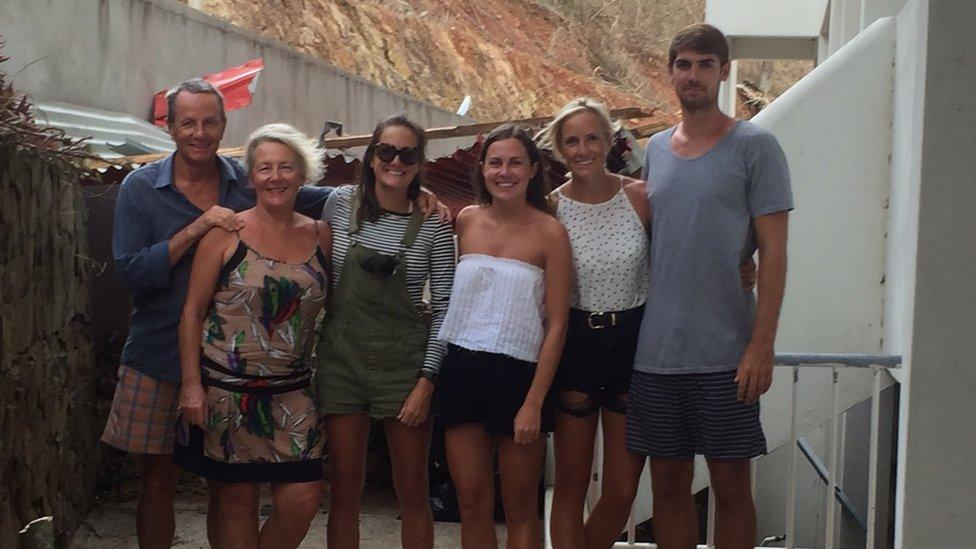Hurricane Irma: UK pledges extra £25m for relief effort
- Published
- comments
Boris Johnson: "You can't but be affected by the scale of the devastation"
The UK is to give an extra £25m of funding to help with the recovery effort following Hurricane Irma, Theresa May has said.
The prime minister pledged the extra money in the Commons amid criticism of the government's response to the disaster in the Caribbean.
The announcement came as Foreign Secretary Boris Johnson arrived in the region to visit affected communities.
He has defended the UK's response saying it was "extremely fast".
The extra funding will be in addition to the £32m already pledged by the government.
Mr Johnson said the UK would be there for Anguilla for "the long term" after the island's "hellish experience".
His trip follows criticism from Caribbean residents and senior MPs that the UK's response was too slow.
Mr Johnson visited Anguilla's worst hit areas, before heading to the neighbouring British Virgin Islands.
Anguillan chief minister, Victor Banks, said the visit by Mr Johnson "sends a very positive signal to Anguillians that the British are serious about their response to this very severe hurricane".
But he said the money offered by the government so far was "not enough".
"I am talking about real capital infrastructure development by the British government.
"At the end of the day, the £10-15 million which is going to come to us is not going to be sufficient," he said.
The former attorney general of Anguilla, Rupert Jones, told the Guardian the £32m hurricane relief fund was a "drop in the Caribbean Sea, external".
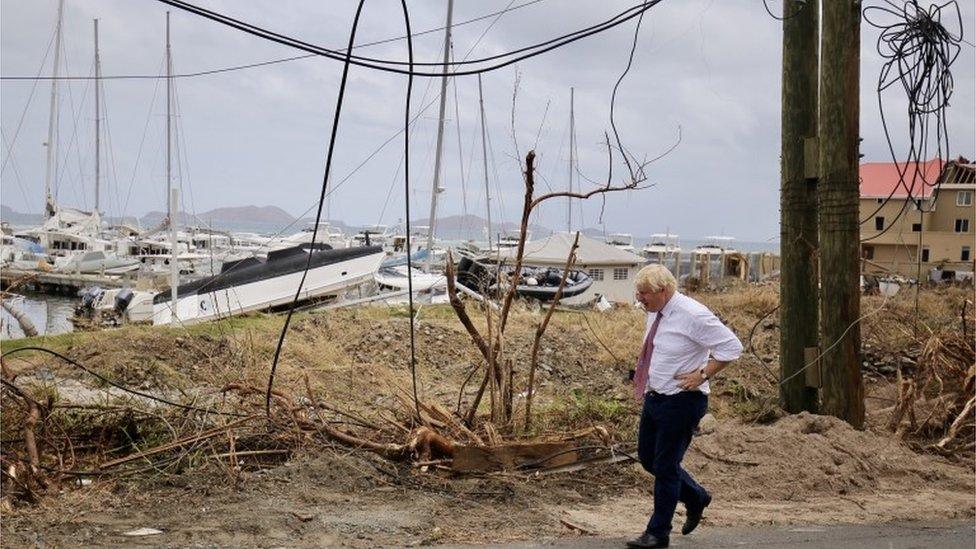
The foreign secretary visited the British Virgin Islands where communities suffered devastating damage
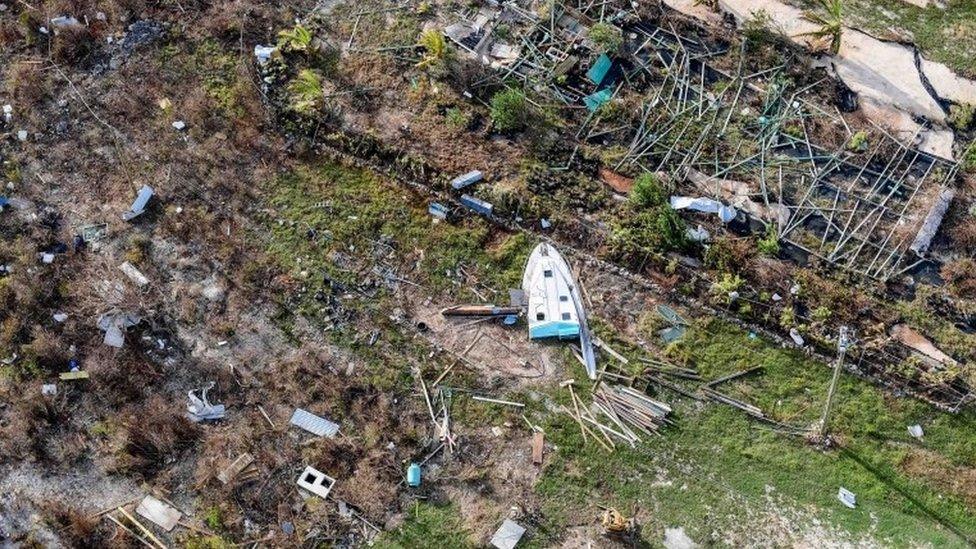
Irma caused widespread damage across the island of Anguilla
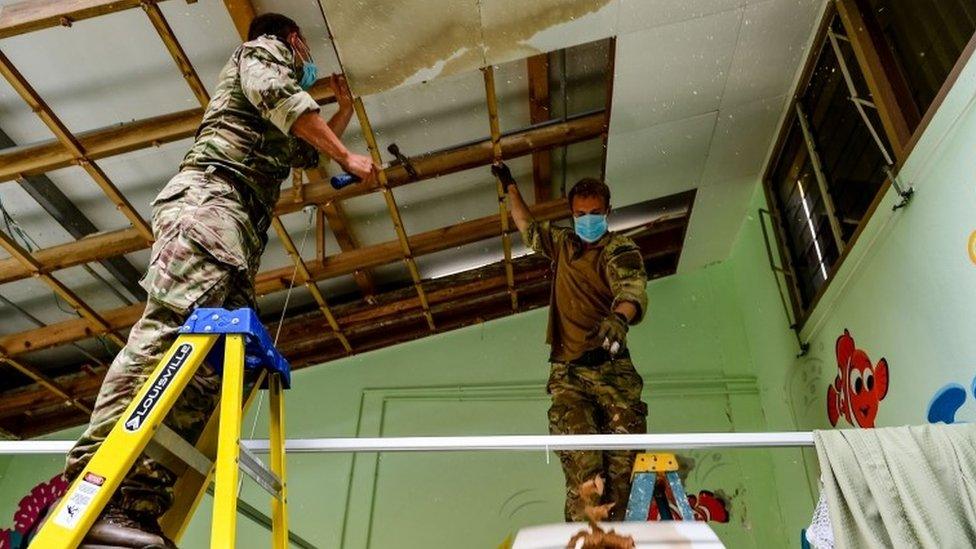
Royal Marines clearing up the damage at Princess Alexandra Hospital on the island of Anguilla
Anguilla, Turks and Caicos, and the British Virgin Islands (BVI) are among 14 British overseas territories which are all self-governing but the British government is responsible for their defence and security, with a duty to protect them from natural disasters.
Anguilla suffered extensive damage, and at least one person there has been confirmed dead.
Allow X content?
This article contains content provided by X. We ask for your permission before anything is loaded, as they may be using cookies and other technologies. You may want to read X’s cookie policy, external and privacy policy, external before accepting. To view this content choose ‘accept and continue’.
Mr Johnson visited Anguilla's Princess Alexandra Hospital, which suffered 60% damage, where Royal Marines have been helping to clear up and make repairs.
He said: "You can't be but affected by the scale of devastation the people of Anguilla have endured."
Mr Johnson called it the "biggest operation our armed forces have conducted since Libya".
The Foreign Office said that more than 1,000 UK military personnel in the region helping with the relief effort, with 200 more arriving the next few days.
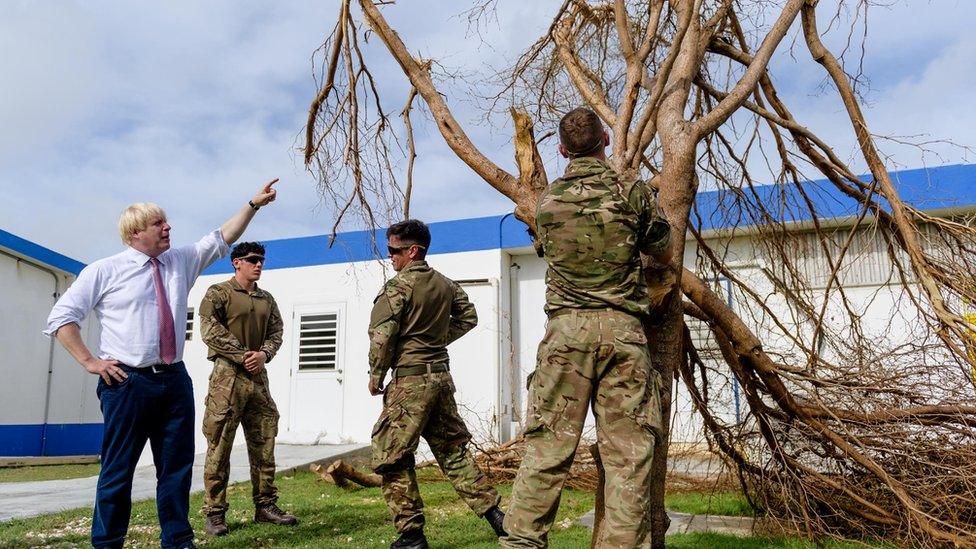
Mr Johnson visited Anguilla's worst hit areas, including the Princess Alexandra Hospital
Speaking at the home of Anguilla governor Tim Foy on Tuesday, Mr Johnson praised the community's response to the hurricane.
Allow X content?
This article contains content provided by X. We ask for your permission before anything is loaded, as they may be using cookies and other technologies. You may want to read X’s cookie policy, external and privacy policy, external before accepting. To view this content choose ‘accept and continue’.
He added: "Talking to you all, it is clear this place has been through an absolutely hellish experience, and it is no doubt at all that you need help with power generation, with getting the hospital back up and running, getting the airport back up and running, and schools properly set. We are here to help."
Hundreds of UK troops have been sent to the British Virgin Islands and Mr Johnson said more would be joining them.
"The military presence is really ratcheting up now," he said. "There were about 700 troops in the region, that has now gone up to 1,000. It will go up to 1,250 in the course of the next few days."
The Royal Navy's HMS Ocean is on its way from Gibraltar to the Caribbean loaded with emergency supplies including timber, buckets, bottled water, food, baby milk, bedding and clothing.
So far, 40 tonnes of UK aid have arrived in the region, including over 2,500 shelter kits and 2,300 solar lanterns, the Ministry of Defence said.
British holidaymakers describe how they coped with Hurricane Irma when it hit the US
Meanwhile, British holidaymakers have begun to return to the UK from Florida, where around 10 million people were still without power on Wednesday morning.
Julie Doyle landed at Manchester Airport after a flight from Orlando. She said her hotel, among others, had been ordered to accept dogs along with evacuated residents.
"Our hotel was full of dogs because people with dogs who'd abandoned their homes brought them all to our hotel, which was so bizarre," she said. "So you'd go down to reception and there was just dogs, everywhere."


- Published13 September 2017
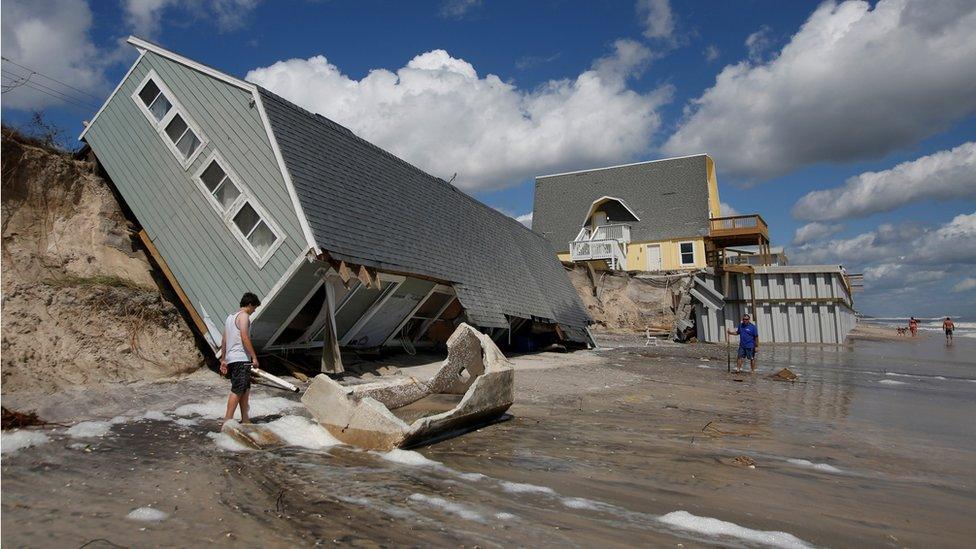
- Published13 September 2017
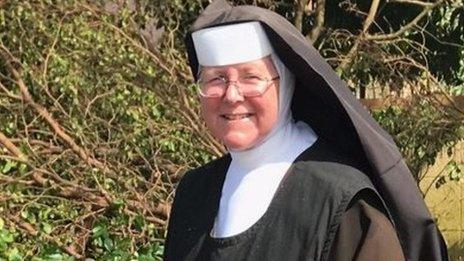
- Published12 September 2017
